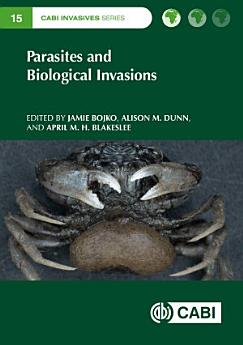Parasites and Biological Invasions
eBook 정보
저자 정보
Dr Jamie Bojko acquired his B.Sc. from the University of Leeds (UK) in Genetics (IND) in 2013 before progressing onto a PhD in aquatic pathology with a focus on invasive species and the co-introduction of disease. His B.Sc. and Ph.D. were both completed with an association with the Centre of Environment, Fisheries and Aquaculture Sciences (Cefas), a global leader in aquatic pathology and diagnostics, in the UK. After completing his PhD in 2017, he underwent employment at the University of Florida (USA) for his first postdoctoral position. This position included working with the economically important Callinectes sapidus and exploring the range of a specific disease, 'Callinectes sapidus Reovirus 1' throughout coastal USA, Caribbean and South American states and countries. His second postdoctoral position at the University of Florida brought his research focus back to aquatic invasion systems, particularly exploring the effects of disease introductions and impacts with North American crayfish species.
Jamie has contributed to multiple academic book chapters and is a review editor for the Inter-Research journal, Diseases of Aquatic Organisms. Jamie's research now broadly explores the detection and systematic description of aquatic parasites, determining both their diversity and impact upon native or non-native host(s) and the environment.
Dr Alison Dunn's first degree was in Zoology at Pembroke College Oxford. After working as a nature research warden, a lab technician and a violin teacher, she returned to academia to undertake a PhD in parasitic sex ratio distorters at the University of Leeds. Her post-doctoral research was at the NERC Centre for Population Biology, Imperial College. She came to the University of Leeds as a NERC Research Fellow, then as a University Research Fellow, before joining the academic staff. She was promoted to Reader in Evolutionary Ecology in 2005, and now leads the Zoology degree programs at Leeds. Her research areas are invasive species, parasitic disease and novel ecosystems; and slowing the spread of invasive non-native species and parasites. Dr Dunn has published >130 peer reviewed papers, multiple book chapters aimed variously at academics and undergraduates and a book "Parasites in Ecological Communities" (Hatcher and Dunn 2011, CUP). She works with stakeholders from government, charity and businesses to develop evidence-based conservation policy and resources to slow the spread of invasive species.
Dr. April MH Blakeslee is an Assistant Professor of Biology at East Carolina University (Greenville, NC, USA), where her research and teaching interests focus on conservation biology, marine ecology, invasion biology, parasitology, and evolutionary ecology. Dr. Blakeslee has published over 30 peer-reviewed papers and book chapters related to these subjects and also serves as Deputy-Editor-in-Chief for the open-access journal, BioInvasions Records. She also serves as an Associate Editor for the journals Aquatic Invasions and Diversity and Distributions. In 2018, she was appointed by NOAA to serve as a US member of the Working Group on Introduction and Transfers of Marine Organisms (WGITMO) through the International Council for the Exploration of the Sea (ICES). In 2017, Dr. Blakeslee received funding from North Carolina Sea Grant that led to the design and construction of a permanent exhibit on biological invasions at the North Carolina Estuarium (Washington, NC, USA) that opened in October 2017. Prior to her appointment at ECU, she had a previous position (2011-2015) at Long Island University-Post in Brookville, NY, USA where she taught several undergraduate and graduate courses related to general biology and ecology, and she also carried out research on biological invasions and parasites. Before that position, she received two competitive Smithsonian Institution postdoctoral fellowships (2007-2011) to work in the Marine Invasions Ecology Laboratory at the Smithsonian Environmental Research Center (SERC) in Edgewater, MD, where she performed research on marine invasive species and the role of parasites in those invasions. She holds a Ph.D. in Marine Ecology/Evolutionary Biology from the University of New Hampshire (Durham, NH, USA) and a BA (concentration marine science) and MA in Biology (masters thesis on habitat fragmentation in Ovenbirds in suburban Boston) from Boston University (Boston, MA, USA).








